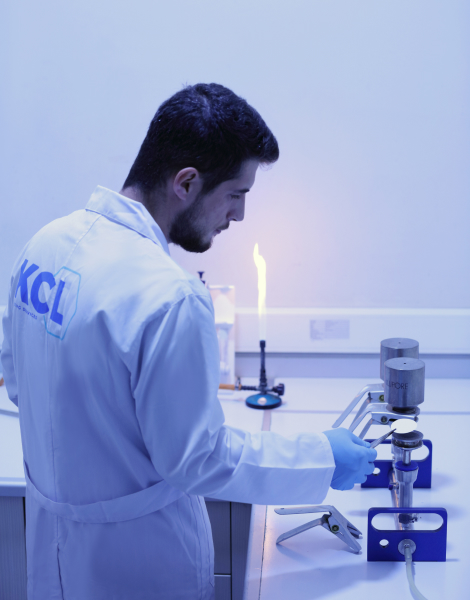Water Analyses
Water, which plays an important role in the processing, preparation and production of all foods, has a fundamental role in ensuring food safety. Microbiological and chemical analyses of water should be carried out periodically and its compliance with legal regulations should be evaluated.
The water contained in the food and used in the food process should not contain toxic residues such as heavy metals and pesticides, and should comply with bacteria-laden legislation.
Kazlıçeşme Laboratories provides solutions for your needs with its expert staff and experience in determining water quality.
Water Analyses Experiment Table
Lead (Pb), Cadmium (Cd) Analysis AAS Method
In-house Method - AY-KL-042 (modified from EPA Method 1637)
1000 mL
Iron (Fe) Analysis, AAS Method
In-house Method - AY-KL-074 (modified from EPA Method 1637)
1000 mL
Escherichia coli (E. coli) and coliform bacteria count (membrane filtration technique)
TS EN ISO 9308-1
500 mL
Detection of Faecal Enterococci (membrane filtration technique)
TS EN ISO 7899-2
500 mL
Colony Count at 22C and 36C
TS EN ISO 6222
500 mL
Hardness
SM 2340
1000 mL
Free Chlorine
SM 4500
1000 mL
Electrical Conductivity
TS 9748
1000 mL
pH
TS 10523
1000 mL
Determination of Nitrate
SM 4500 B
1000 mL
Determination of Nitrite Amount
SM 4500 NO2–B
1000 mL
Determination of Ammonium Amount
TS 7159
1000 mL
Determination of Arsenic (Ace)
In-house Method AY-KL-073 (SM 3114 B)
1000 mL
Determination of Mercury (Hg)
In-house Method AY-KL-079 (SM 3112 B)
1000 mL
Blur
TS 5091 EN ISO 7027
1000 mL
Taste, Smell (organoleptic)
SM 2170 B
1000 mL
Colour
SM 2120 B
1000 mL
Permanganate Index (Determination of oxidizability)
SM 4500-SO42- E
1000 mL
Permanganate Index (Determination of oxidizability)
TS 688 EN ISO 8467
1000 mL


